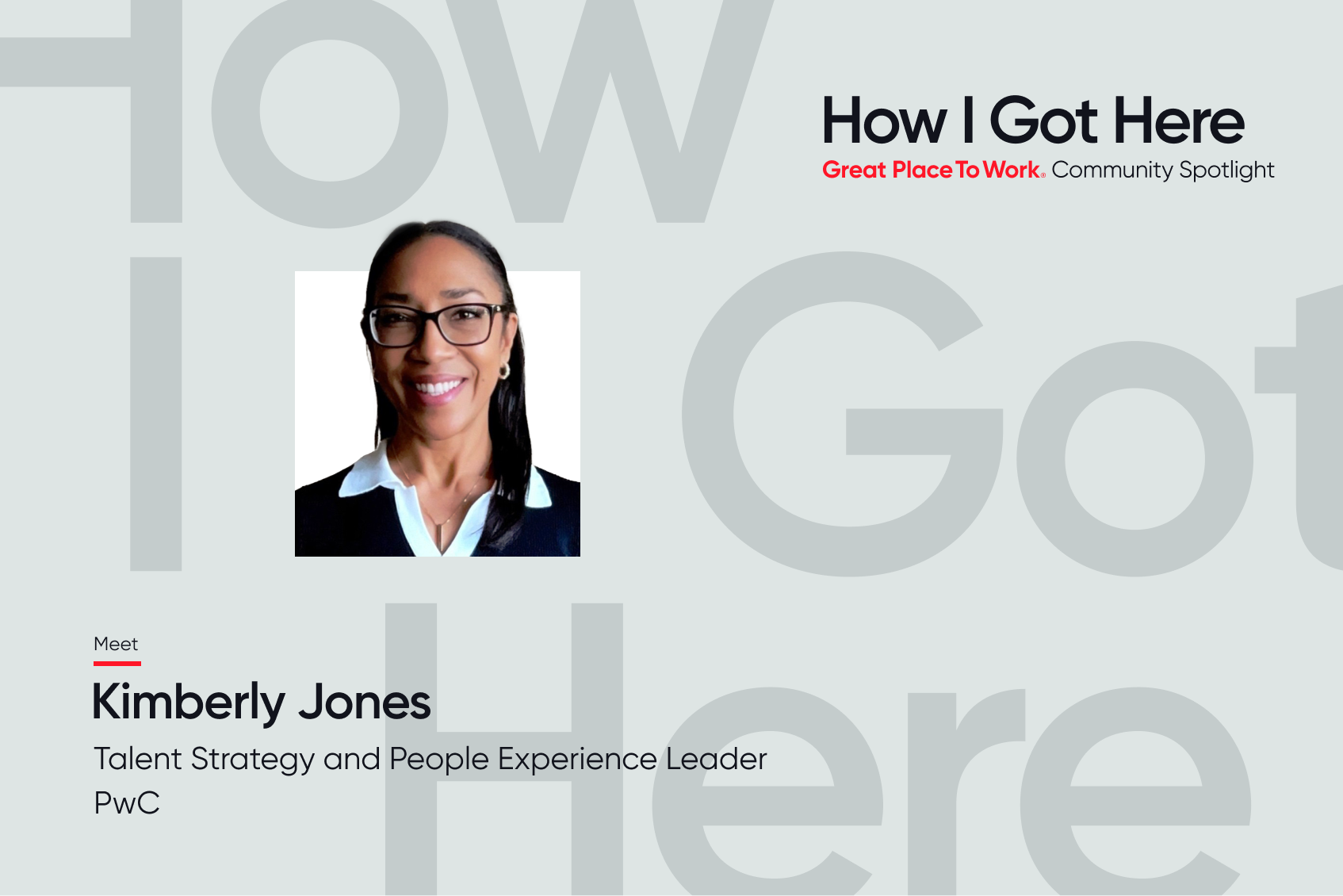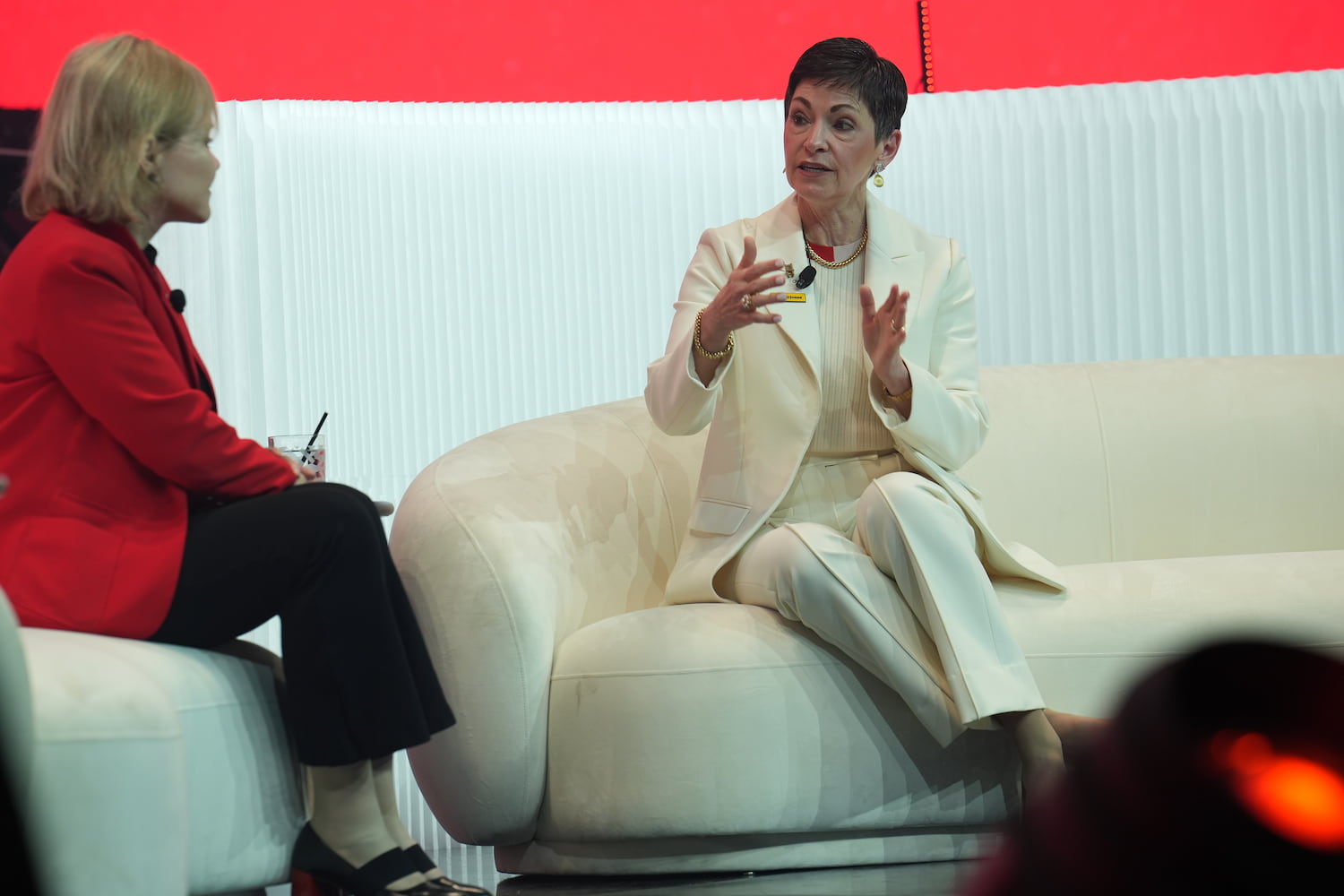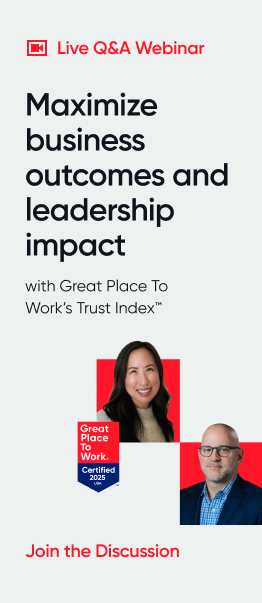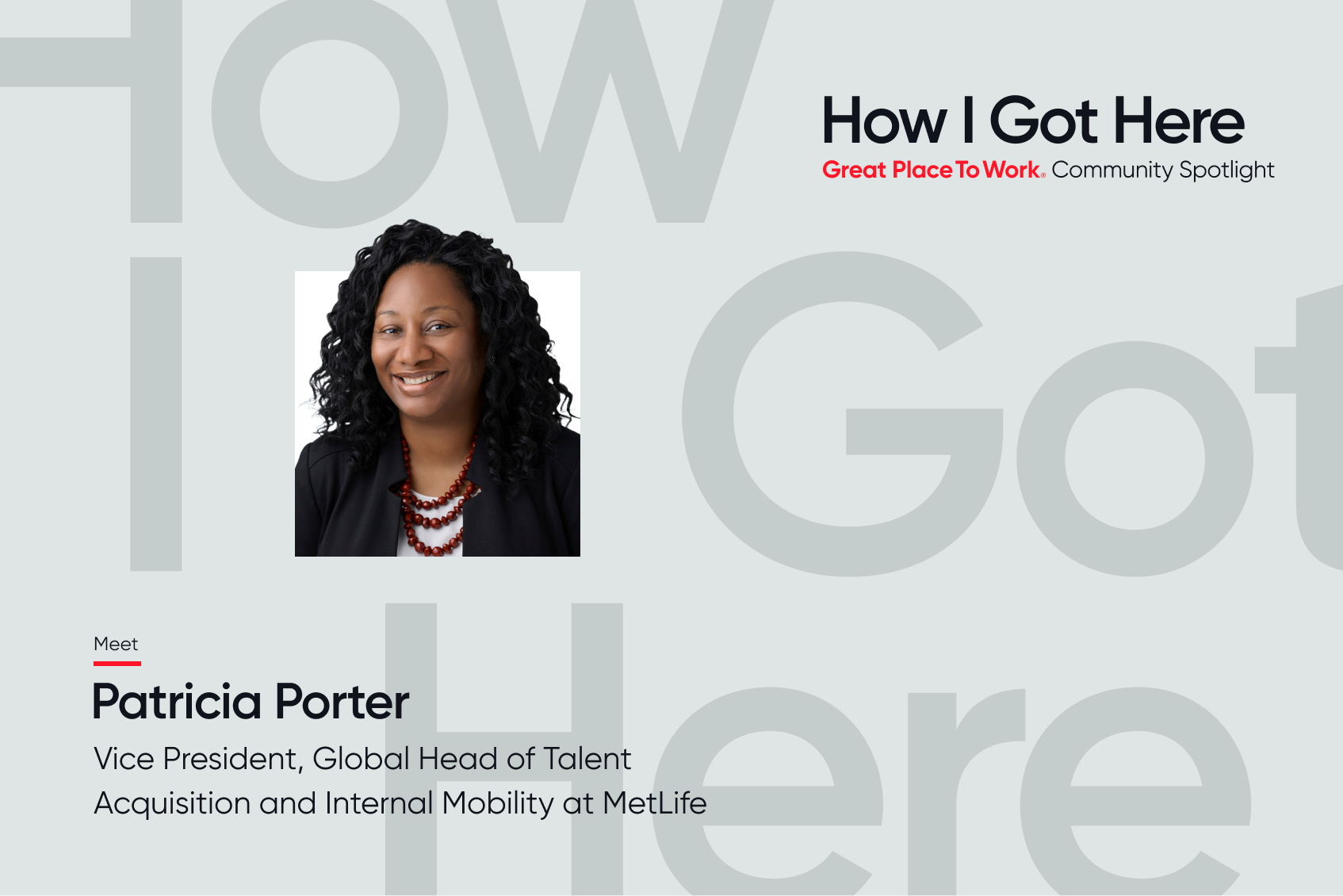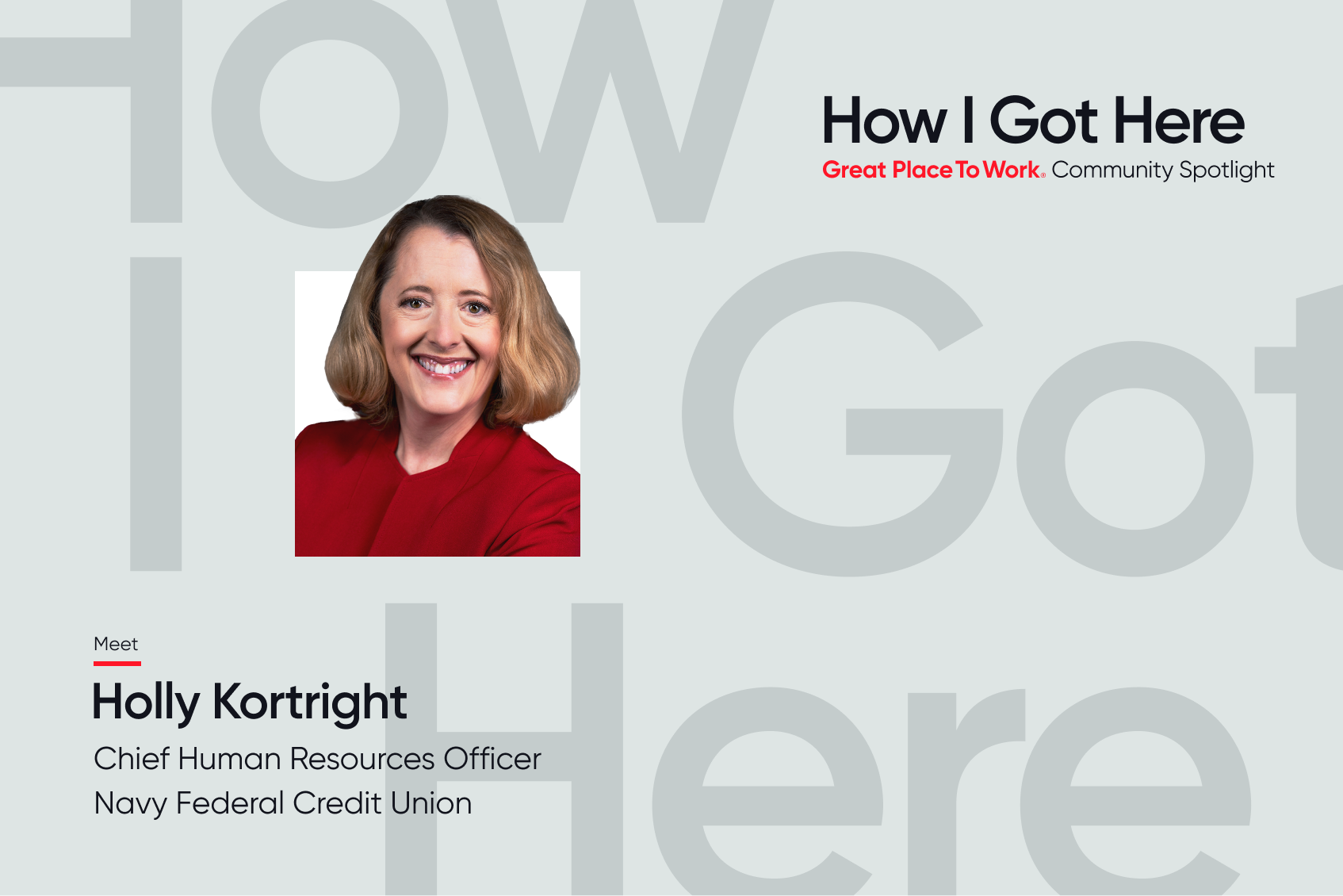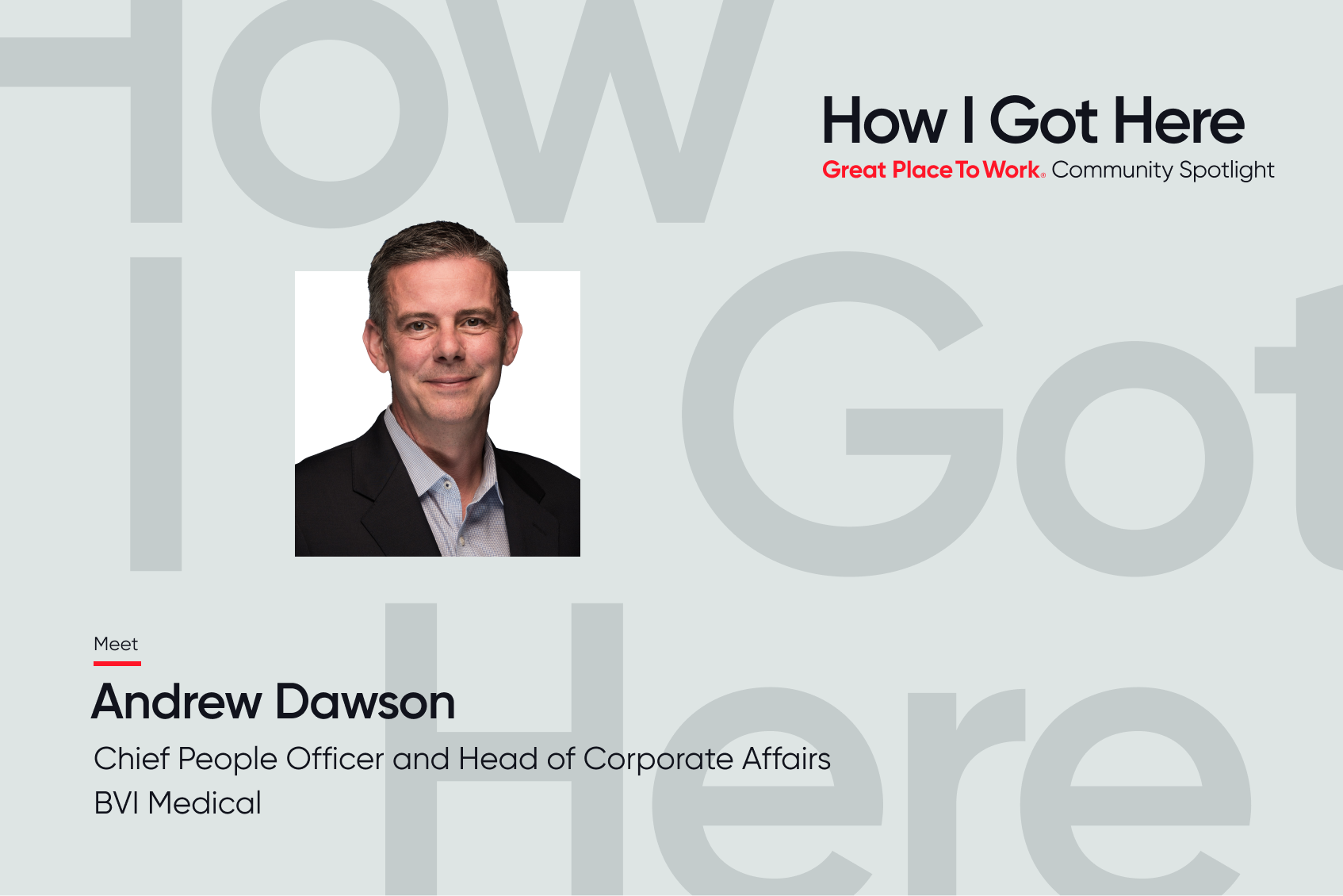The talent strategy and people experience leader talks with us about her career, lessons learned from the pandemic, and what she thinks AI will do for her job.
Getting buy-in for your HR strategy is much easier when you can connect to tangible business outcomes.
That’s one of the big takeaways from a career journey that has taken Kimberly Jones from an auditor position at the accounting firm PwC to her current role as a leader of talent strategy and people experience.
We spoke with Jones for our “How I Got Here” series to learn more about her experience, lessons learned, and career advice for aspiring HR and culture champions.
What was the hook that first got you interested in workplace culture?
Jones: I began my career journey with a master’s degree in accounting from the University of Oklahoma, which led to my taking on an auditor position at PwC (technically Price Waterhouse as this was pre-merger). Within that first year out of college, I achieved my goal to become a CPA, but as I grew to be more intrigued by the human aspect of our business, I immersed myself in recruiting and other people-centric activities, uncovering a true passion for the people side of our business.
Leveraging my client service experience, I fortunately had the support of my leadership team to explore a dual role in both client service and recruiting. As time progressed, I smoothly transitioned deeper into our “human capital” or “people” team.
Over the next few years, I built on my foundational business experience to fully immerse myself in the people experience and have never looked back!
What has been the biggest challenge you faced in your career when trying to build a great workplace culture?
Jones: Sometimes, it can be a challenge articulating the direct tie between the strategy to build culture for our people and the strategy for building the business, and having it be seen as such.
By emphasizing alignment with business goals, tangible impact, and real-life stories, I learned that the value of our people strategy can be both evident and compelling. This means keeping the relevance and sustainability of the business at the forefront of all our people strategies.
It’s important to move beyond simply showcasing daily activity and instead focus on demonstrating the concrete impact of our initiatives on the vitality of the business. Numbers and metrics are important, and we should also provide tangible stories and real-life examples that illustrate the positive influence of our policies, procedures, programs and strategies — on both our people and the business.
What is the No. 1 lesson you have learned about what it means to be a great workplace in a post-pandemic environment?
Jones: Deep commitment to people is at the core of my work, and it stems from recognizing the profound impact that work has on our overall quality of life.
We spend a significant portion of our lives in the workplace, and it’s so important that this time benefits both the organization and the individual.
I believe in creating an environment that fosters the growth and well-being of each individual within it. It’s about providing a comfortable, engaging, and inspiring place where our people can share their unique talents to serve our clients effectively. We want our people to find purpose in their work and to develop themselves, both technically and personally, nurturing their own growth and interpersonal skills.
The need for organizations to prioritize the well-being of their people, across all aspects, remains paramount. It’s also important to be there for our people when life presents challenges that require extra support.
Whether it’s personal circumstances or professional development, our role in the people team is to offer guidance and assistance. My personal mission within our people team at PwC is to make our people’s experience at work the best it can possibly be. I want every colleague to feel safe, valued, and empowered to contribute their best to our collective success — and gain rewarding experiences that enrich their lives while doing so.
How do you think AI will change your work? Are you excited for those changes?
Jones: Yes! Very excited.
As we look ahead, several trends and shifts are on the horizon — and in fact, are already coming to fruition. One notable transformation is the growing role of AI in enhancing efficiency and productivity across the board. AI technologies are quickly becoming indispensable tools in optimizing performance, streamlining processes, and unlocking new avenues of innovation.
At PwC, we’ve introduced ChatPwC, our own generative AI tool, and we anticipate a continuous surge in the adoption of technologies, some of which may not even exist today, into our daily work routines. It will reshape how we approach our tasks, from communication to problem-solving, allowing us greater opportunity to stay at the forefront of a dynamic and ever-changing landscape.
Catch Kimberly Jones on the Better podcast talking about how PwC is building trust around AI in the workplace.
What’s your favorite career advice you’ve ever received? Why?
Jones: First, always remember your “why.” The initial passion and purpose that inspires you should remain a guiding star throughout your career journey.
Next, don’t shy away from pushing the envelope with your leaders; be unafraid to propose innovative ideas and challenge the status quo.
Also, listening is a key skill in this profession; actively seek and value the ideas and insights of your employees as their perspectives can be magic for innovation and wisdom.
And lastly, remember to cultivate enriching relationships. Strong bonds with colleagues, mentors, and peers are not just beneficial, they are crucial. These connections provide support, guidance, and collaboration opportunities, giving you a most fulfilling and successful career experience.
What book or podcast would you recommend to our community of leaders trying to build better workplaces?
Jones: I’m a podcast gal, as I always seem to want to do two things at once ... listen while I’m driving or exercising or doing things around the house. Aside from the excellent GPTW “Better” podcasts, I enjoy and get a lot from the i4cp “Next Practices Weekly” podcasts, which are recorded from i4cp’s live weekly webinars. They feature leading industry HR leaders with a story to tell about something innovative that’s been implemented in the respective workplaces.
I get inspiration and ideas from listening to these interviews. And the leaders featured personally motivate me and give me energy.
What about your job makes you excited to come to work each day?
Jones: My favorite aspect of my work is the opportunity to think big alongside my team about how we can make the workplace better and better.
I get great reward from bringing new ideas to life that enhance the overall experience for our people at PwC. And the team that I am so fortunate to work with every day is top-notch, passionate, and so incredibly stellar at what they do. I learn from them and am inspired by them every day.
From upskilling on generative AI to building on our culture of belonging, it’s immensely rewarding to implement ideas that directly impact the lives of our employees across the country. Whether it’s offering culture-enhancing protected time away from work — like PwC's two week-long firmwide shutdowns — or celebrating professional development through memorable events like PwC's annual Promotion Day, there are shining moments that HR organizations can create.
Through PwC’s My+ people strategy, our people organization has played an impactful role in helping our firm continually offer cutting-edge tools and developmental programs that empower our people to learn, grow, and better serve our clients.
If you could wave a magic wand and change one thing about how workplaces operate in the world today, what would it be?
Jones: I would say take away the things that sometimes seem to slow down progress. I like to get things done, and fast!
The time it takes from excellent idea to becoming reality and benefitting our people on the ground can sometimes feel too long. I understand there are necessary things like refining ideas, gaining buy-in from leaders and stakeholders, budget approvals, operationalizing ... I just wish sometimes these things could happen even faster so that our people take part in the vision soonest.
With that said, though, I am ever grateful for the guardrails that can protect us from moving too fast at times. The whole point is to do the best work we can for our people and get to the best answers and best result — even if that means we sometimes have to slow down to speed up!
Want to join the conversation? Email Ted Kitterman to learn more about participating in our profiles series.
Join us in Las Vegas!
Register for the next For All Summit™, April 8-10, to connect with leaders and experts from great workplaces around the world.



